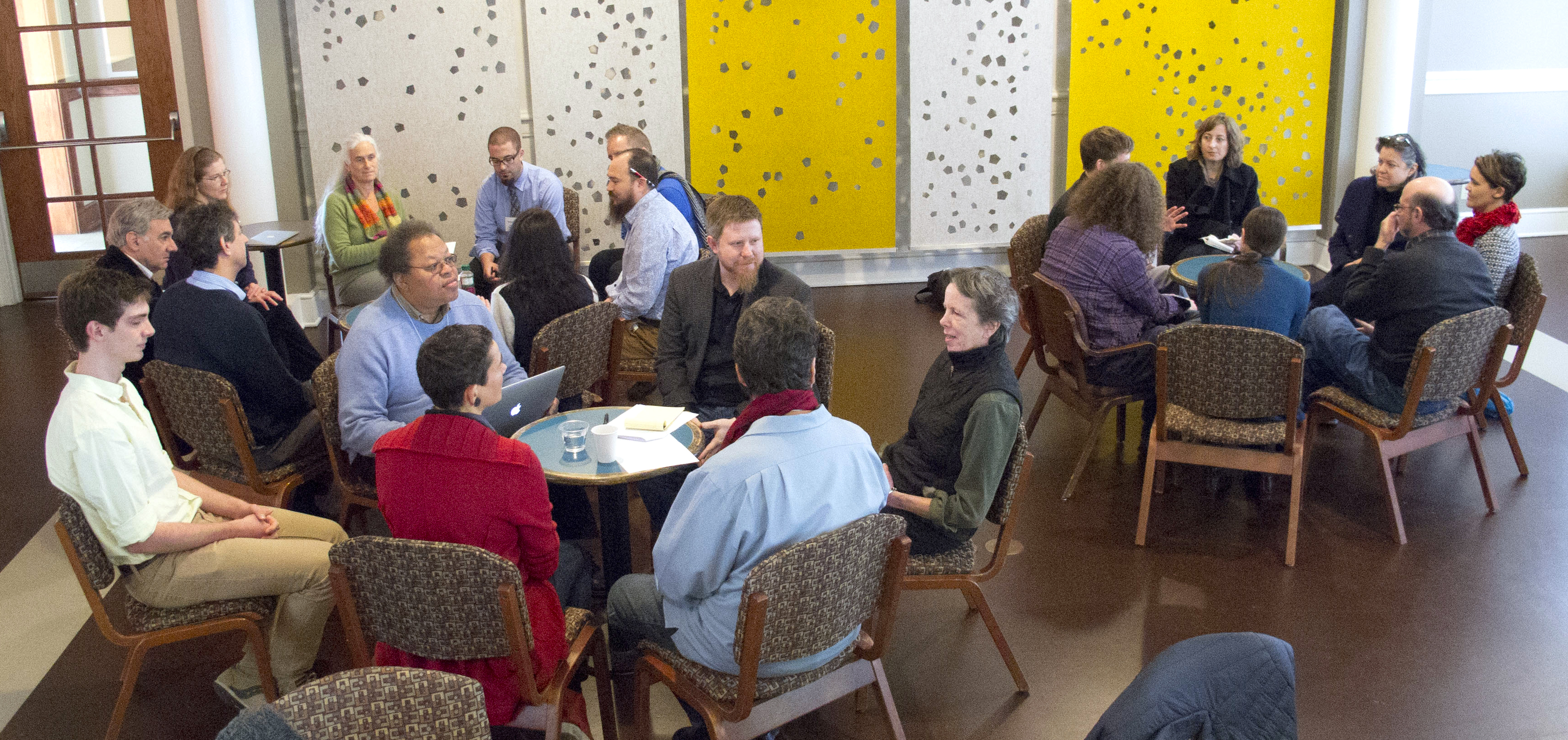
“Improvisation, Interdisciplinarity and the Liberal Arts,” a three-day faculty workshop at Amherst, brought together professors and researchers from leading liberal arts institutions across the country with the goal of building collaborative networks among faculty whose research and teaching explore the burgeoning field of improvisation studies.
Organized primarily by Jason Robinson, assistant professor of music at Amherst, and sponsored by the Alliance to Advance Liberal Arts Colleges, the workshop hosted scholars from Amherst, Barnard, Hampshire, Oberlin, Pomona, Reed, Smith, Swarthmore and Wellesley Colleges; Columbia, Denison, Furman, Harvard and Wesleyan Universities; and the University of Guelph in Ontario. The attendees’ departmental affiliations ranged from art, theater, dance and music, to biology, comparative literature, American studies and computer science.
Robinson, a jazz musician who studies improvisation through scholarly research and creative practice, says the term improvisational has been historically defined and understood as meaning “ad-hoc,” “collaborative,” “unplanned” or “happening in real time,” and that “improvisation studies as a field grapples with the term having all these different references.” While recognizing that music and dance have long been leaders in theorizing improvisation, he says that now emerging in the field is “the strongly supported notion of improvisation as a fundamental state of human experience,” an idea that has paved the way for “a significant and growing body of critical studies that focus on improvisation.”
Robinson describes improvisation as “inherently multidisciplinary.” In his written description of the workshop, he lists multiple areas of study in which influential work on improvisation is now taking place: anthropology and sociology; architecture and urban studies; cognitive and computer science; contemplative studies; cultural studies; dance; economics; education; linguistics; literary theory; musicology, ethnomusicology and music theory; neuroscience and psychology; performance, film, gender and sexuality studies; philosophy; theology; and more.
George E. Lewis, the Edwin H. Case Professor of American Music at Columbia University, delivered one of the workshop’s two keynote addresses (see the videos below). In the field’s early years, “the notion of ‘improvisation studies’ seemed an oxymoron to many,” he said. “Fifteen years later, it seems that critical improvisation studies has exploded, with a surge in interdisciplinary inquiry across many musical and nominally nonmusical fields. Most broadly, the critical study of improvisation seeks to examine improvisation’s effects, interrogate its discourses, interpret narratives and histories related to it, discover the implications of those narratives and histories, and uncover its ideologies.” With Benjamin Piekut of Cornell University, Lewis is preparing to publish The Oxford Handbook of Critical Improvisation Studies, a book that Robinson says will inform his own research and teaching.
In focusing on the ways in which improvisation studies, critical improvisation and theorizing improvisation are taking shape at liberal arts colleges, the workshop encouraged faculty participants to consider how improvisation engages and activates modes of critical thinking, creativity and knowledge production in a liberal arts context, and to explore ways to integrate improvisation into their classes.
Following the workshop, Robinson has encouraged his colleagues at Amherst to imagine ways to sustain these ideas through future creative work, scholarship and teaching endeavors.
Watch the Keynote Addresses
Prolegomena to Critical Improvisation Studies
George E. Lewis, Edwin H. Case Professor of American Music, Columbia University
Sound Changes: Five Takes on Improvisation, Social Justice and Interdisciplinarity
Daniel Fischlin, University Research Chair,
University of Guelph